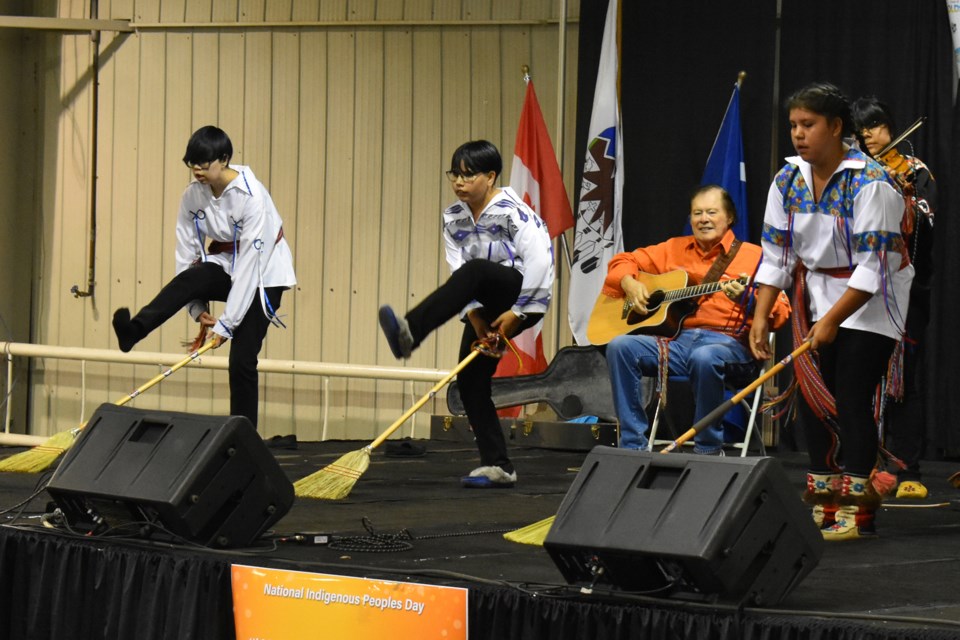OLDS — About 10 people attended a recent meeting on how best to further reconciliation between Indigenous and non-Indigenous people.
The meeting, held in a room in the Olds Municipal Library the evening of Jan. 18, and organized by representatives of the Mountain View Moccasin House (MVMH), lasted nearly two hours.
The group included Debbie Collins and Brent Collins of the MVMH; Elder John Sinclair; Olds Municipal Library manager Lesley Moody; former town heritage advisor Michelle Jorgenson; Rev. Tammy Allan, formerly of the Olds United Church, now ministering at the Innisfail United Church; and a couple of representatives of the BGC Olds & Area (formerly known as the Boys and Girls Club of Olds and Area).
The meeting was part of an effort to come up with some ideas for activities that could be undertaken to achieve more understanding and reconciliation between Indigenous and non-Indigenous people in Olds and area.
During this first meeting though, the focus was more on participants stating why they attended.
They also gave their observations regarding the different perspective between Indigenous and non-Indigenous people when it comes to the history of settlement in Canada by non-Indigenous people.
The effort by churches and the federal government to strip Indigenous people of their culture by sending them to residential schools, away from their families was discussed.
It was generally agreed that there are some people who will never accept that Indigenous people were treated poorly by non-Indigenous people and their governments.
However, meeting participants generally agreed that there’s a much larger group of non-Indigenous people who may be at least open to discussing the idea and learning more about the Indigenous perspective of the last 500 years of history in this country.
Debbie Collins chaired the meeting.
“The goal tonight was to gather some people together who we have understood through our dealings that they are interested also in moving on some of the recommendations from the Truth and Reconciliation Commission,” she said.
“I think that we will probably do some work to bring some more information to people about our shared Canadian history.”
Collins cited the example of her own father.
Although he was never rich, as a non-Indigenous person, he had certain privileges that non-Indigenous people didn’t have.
“He could move across the country freely. He could own land, he could hire a lawyer if somebody did him wrong,” Collins said.
“All of those things are things that are freedoms that we have had that Indigenous people did not have in the past.”
Collins said as a result of her father’s very hard work, she was able to go to college, whereas non-Indigenous people she knew did not have that opportunity.
Collins said another goal would be to eliminate some of the obstacles Indigenous people face.
One example of those obstacles brought up during the meeting was that of Indigenous lawyers who, in order to do their work in court, are required to pledge an oath of allegiance to King Charles III.
“They're not going to swear to something that they don’t believe, they’re lawyers, right? They’ve just come through all that training and everything, but they don’t have an allegiance to the king. They have an allegiance to their nation and people who run their nation,” Collins said.
Collins said more needs to be done than simply apologizing for what happened
“Really it is white people who need to do the reconciling. Indigenous people aren’t the ones who broke the agreements, their side of the agreements,” she said.
As the meeting wound up, it was suggested more meetings are needed on a frequent basis. The next one is slated for Feb. 15. More people from the community are welcome to attend to share their ideas and experiences.



